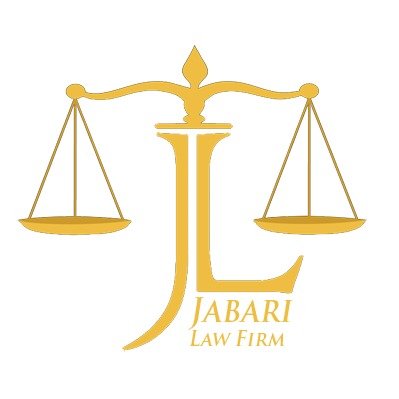Best Real Estate Lawyers in Amman
Share your needs with us, get contacted by law firms.
Free. Takes 2 min.
Free Guide to Hiring a Real Estate Lawyer
List of the best lawyers in Amman, Hashemite Kingdom of Jordan


Hashemite Kingdom of Jordan Real Estate Legal Articles
Browse our 1 legal article about Real Estate in Hashemite Kingdom of Jordan written by expert lawyers.
- Renting in Amman: Can Your Landlord Legally Increase Rent?
- Residential and commercial leases in Jordan are mainly governed by the Landlords and Tenants Law No. 11 of 1994 (as amended), plus the Civil Code, with older pre-31 August 2000 leases treated very differently from newer contracts. The so-called "5-year rule" for rent re-evaluation in Jordan generally applies to older,... Read more →
About Real Estate Law in Amman, Hashemite Kingdom of Jordan
The real estate sector in Amman, Jordan, is highly regulated and contributes significantly to the country's GDP. The Jordanian property laws provide safeguards for property owners and investors alike, ensuring clarity and security in transactions. However, the legal framework governing real estate in Amman, and in Jordan in general, can be complex, particularly for those unfamiliar with Jordanian law.
Why You May Need a Lawyer
Whether you are a local resident or a foreign investor, you may need a lawyer when dealing with real estate in Amman. Standard situations include buying or selling a property, dealing with property disputes, understanding zoning laws, or dealing with rental agreements. Lawyers can also assist with understanding local property taxes, property transfer laws, and ownership regulations, which can vary in complexity.
Local Laws Overview
In Jordan, the real estate laws are governed by various statutes, primarily the Jordanian Civil Code and the Jordanian Land Law. The Land and Water Department is the main governing body overseeing all property disputes and transactions
The laws stipulate that non-Jordanians can own immovable property in the kingdom for residential, industrial, agricultural, and commercial purposes, as long as the property is not within the borders of non-municipal administrative regions and not near archaeological or historical sites.
Frequently Asked Questions
Are foreigners allowed to buy property in Amman, Jordan?
Yes, foreigners can buy property in Jordan for residential, commercial, and industrial purposes, with some restrictions regarding location and use.
What taxes do I need to consider when buying property in Amman?
Buyers need to consider the property transfer tax, which is typically 10% of the property value, as well as annual property taxes which vary depending on the use of the property.
Do I need a lawyer to sell my property in Amman?
While it is not mandatory, it is highly advisable to engage a lawyer due to the complexity of property laws in Amman.
What are the responsibilities of a landlord in Amman?
Landlords in Amman are responsible for ensuring the property is safe and well-maintained, adhering to the terms of any rental agreement, and respecting the rights of tenants.
What rights do tenants have in Amman?
Tenants have rights to peaceful enjoyment of the property, repairs and maintenance, respect for their privacy, and to be informed in advance of any potential property sale or foreclosure.
Additional Resources
The Ministry of Justice, Ministry of Municipal Affairs and the Amman City Corporation provide various resources and guidelines related to real estate laws in Amman. Property owners and potential investors can also approach real estate associations like the Jordanian Association of Real Estate Developers for advice and support.
Next Steps
If you require legal help with real estate in Amman, engage a local lawyer who is familiar with Jordanian property laws. Ensure that you understand all legal obligations and rights before entering any property agreement. Seek the lawyer's advice on all paperwork, title deeds and contract terms to avoid possible disputes in the future.
Lawzana helps you find the best lawyers and law firms in Amman through a curated and pre-screened list of qualified legal professionals. Our platform offers rankings and detailed profiles of attorneys and law firms, allowing you to compare based on practice areas, including Real Estate, experience, and client feedback.
Each profile includes a description of the firm's areas of practice, client reviews, team members and partners, year of establishment, spoken languages, office locations, contact information, social media presence, and any published articles or resources. Most firms on our platform speak English and are experienced in both local and international legal matters.
Get a quote from top-rated law firms in Amman, Hashemite Kingdom of Jordan — quickly, securely, and without unnecessary hassle.
Disclaimer:
The information provided on this page is for general informational purposes only and does not constitute legal advice. While we strive to ensure the accuracy and relevance of the content, legal information may change over time, and interpretations of the law can vary. You should always consult with a qualified legal professional for advice specific to your situation.
We disclaim all liability for actions taken or not taken based on the content of this page. If you believe any information is incorrect or outdated, please contact us, and we will review and update it where appropriate.
Browse real estate law firms by service in Amman, Hashemite Kingdom of Jordan
Amman, Hashemite Kingdom of Jordan Attorneys in related practice areas.














